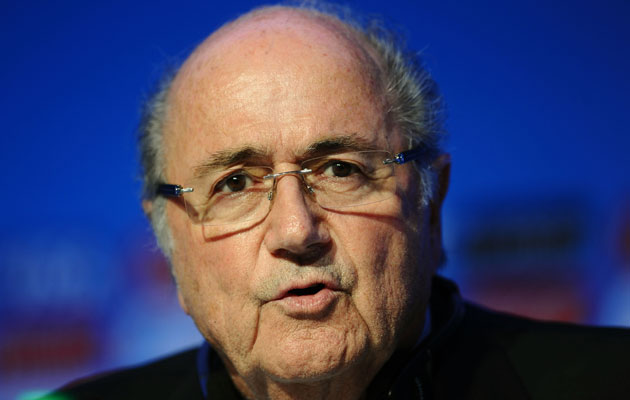The election to choose the next president of embattled world football federation FIFA will be held on February 26, most of the way towards next year’s ordinary congress.
That was the one definitive conclusion reached by a special meeting of the executive committee in Zurich which also set out the roadmap for a resurrected but uncertain reform process.
Pushing the election back until late February will intensify demands that president Sepp Blatter – who decided to “lay down the mandate” four days after being re-elected in May – should quit with immediate effect. He is likely to resist with the lure of presiding over the annual star-studded FIFA Gala on home turf in Zurich next January.
Frenchman Michel Platini, president of European federation UEFA, is one of the early favourites as a possible successor but has flip-flopped over whether he wants the job. Ultimately he might be persuaded to do so on a one-term basis. Candidates have until October 26 to step forward with the essential five nominations.
The prospect of having to prop up FIFA’s wrecked reputation for a further seven months may dismay its image and media advisers after the cataclysmic events of the past seven weeks with arrests of senior football figures amid corruption allegations concerning more than $150m.
Whether Blatter’s latest proposals for term limits, integrity checks and pay transparency will succeed in assuaging critics’ concern is doubtful, partly because the same issues failed to pass muster previously.
The only difference this time is the promise of an “independent personality” to lead the latest of FIFA’s many task forces. This gambit may be enough to calm, temporarily at least, the image concerns of major World Cup sponsors such as Coca-Cola and McDonald’s.
If Blatter’s revivalist campaign had been targeted at reform within merely FIFA alone then prospects would be bright. However his insistence that all six confederations and 209 national associations should incorporate the changes appear a recipe for failure.
The original reform process was launched in 2011 under the guidance of Basel governance guru Mark Pieth. This produced the twin-chamber ethics committee but failed to persuade congress of the need for term limits, pay transparency and centralised integrity checks. Federations did not want to write such revolutionary controls into their own rulebooks.
Nothing, in the meantime, has suggested any change of mind within the greater football heartland though Blatter presented the return to reform in optimistic terms.
He said: “We had a reform process since 2011 but there are still a few items which were not dealt with but now we have decided to go in and we have decided to have a task force: 11 people with 10 ‘players’ and a coach who will be an independent personality.”
That independence will stretch only as far as the people appointing him or her. This is not very far at all. As Blatter said: “We will decide, together with the presidents of the confederations, who will be this personality to chair the reform task force.”
Then he added: “We have to make sure the decisions are taken by the congress and go down in the pyramid, to the confederations and to the national associations – FIFA cannot be alone responsible for the 209 national associations, 300m active participants and 1.6bn people directly or indirectly linked with this game. It has to go through the pyramid of FIFA.”
The chairman and task force will have to work fast. They should be appointed, start work and report back to the next exco meeting in September.
Blatter will still be firmly in the presidential chair then though he continued to insist he does not intend to be a candidate for his own succession.
He insisted: “I will not be a candidate for the election in 2016. I have put my mandate at [congress’s] disposal and there will be elections for a new president. Not only a president but a new president. I cannot be a new president because I am an old president.”







